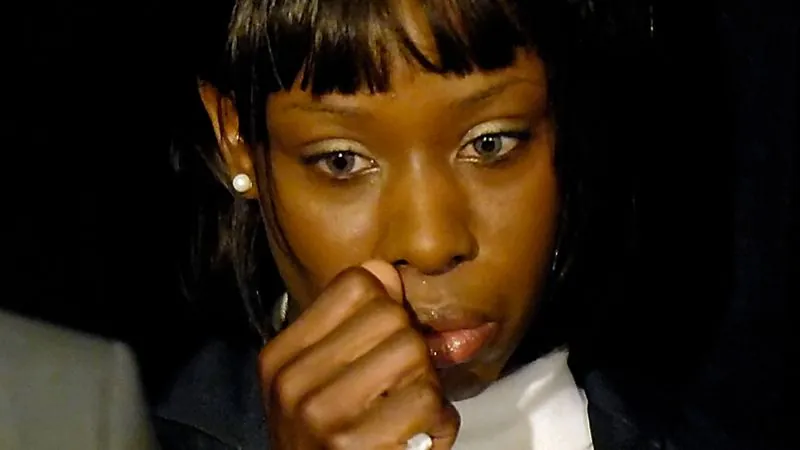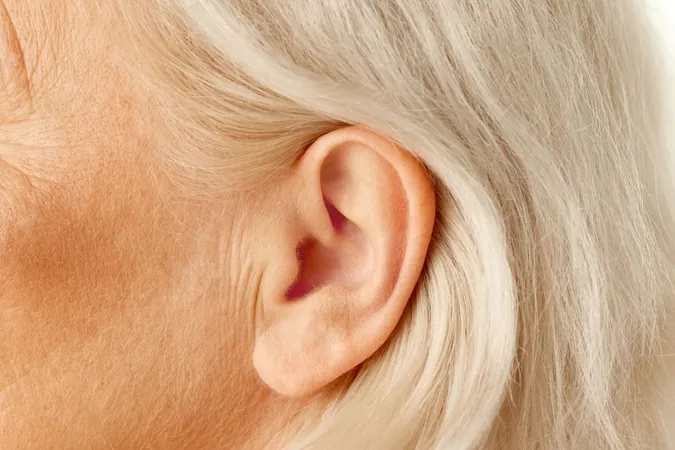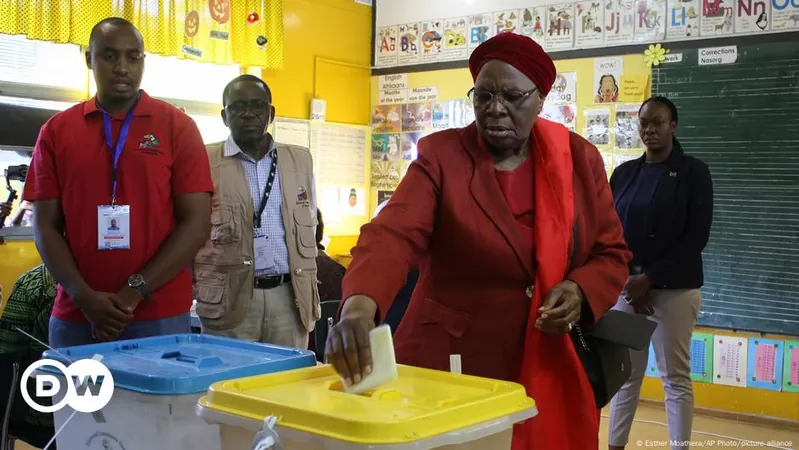
Shocking Confession: Crystal Mangum Admits to Fabricating Duke Lacrosse Rape Allegations!
2024-12-14
Author: Emma
In a stunning revelation over 18 years after the infamous Duke lacrosse scandal, Crystal Mangum, the woman whose false claims nearly derailed the lives of three Duke University lacrosse players, admitted to fabricating her accusations. During a recent interview on the web show "Let's Talk with Kat," Mangum expressed remorse, acknowledging that her relationship with God has enabled her to confront the truth.
“I testified falsely against them by saying that they raped me when they didn’t, and that was wrong,” Mangum stated. Now serving time for a separate offense—a second-degree murder conviction for killing her boyfriend—she reflected on the consequences of her actions. “I made up a story that wasn’t true because I wanted validation from people and not from God,” she confessed.
A Timeline of Controversy
The events of the 2006 case ignited a national media frenzy, highlighting issues of race, class, and privilege. Here’s a brief look at how the scandal unfolded: - **March 13, 2006**: Mangum was hired as an exotic dancer for a Duke lacrosse team party. Early the next day, she made accusations that three lacrosse players had raped her. - **March 28, 2006**: Duke University President Richard Brodhead suspended the lacrosse team, leading to intense public scrutiny. Reports framed the case as a racial struggle, with media highlighting the dynamic between privileged white athletes and a black woman. - **Various March-April Dates**: Despite DNA evidence failing to connect the lacrosse players to the alleged crime, District Attorney Mike Nifong moved forward with charges based largely on Mangum's testimony. Insufficient evidence led to skepticism over the legitimacy of the case. - **April 11, 2007**: North Carolina's Attorney General Roy Cooper declared that there was insufficient evidence to proceed with charges, officially exonerating the three accused players.
Following the series of events, Nifong lost his law license due to misconduct, and Duke later settled with the wronged players for an undisclosed amount of money.
The Ripple Effects of False Allegations
Mangum's claims not only endangered the lives and futures of the three lacrosse players—David Evans, Collin Finnerty, and Reade Seligmann—but also cast a long shadow on genuine sexual assault victims. Advocates fear that high-profile false allegations like Mangum's discourage real victims from coming forward for help.
Jennifer Simmons Kaleba, vice president of communications for RAINN, the country's largest anti-sexual violence organization, noted, "False reports hurt not only the people falsely accused, they hurt every rape victim." A 2010 study estimates that false allegations constitute only 2 to 10 percent of sexual assault reports, yet the stigma and fear perpetuated by cases like Mangum's may silence even more survivors.
Reflecting in Prison
While imprisoned, Mangum has stated that she has found solace in reading the Bible, asserting that she now views her past through a lens of personal growth. “I hope they can forgive me... I want them to know that I love them and they didn’t deserve that,” she said, voicing her hopes for reconciliation with the players she wronged.
Once a psychology student at North Carolina Central University, Mangum's life took a dramatic turn, evolving from seeking affirmation from others to discovering a sense of self-worth and understanding through her faith.
This complex case remains a poignant reminder of the delicate balance between seeking justice for victims of sexual assault and ensuring due process for the accused. As the fallout continues, it raises essential questions about the impact of false allegations on society's perceptions of real victims, making a compelling case for the necessity of comprehensive support and advocacy for those who have been genuinely harmed.









 Brasil (PT)
Brasil (PT)
 Canada (EN)
Canada (EN)
 Chile (ES)
Chile (ES)
 España (ES)
España (ES)
 France (FR)
France (FR)
 Hong Kong (EN)
Hong Kong (EN)
 Italia (IT)
Italia (IT)
 日本 (JA)
日本 (JA)
 Magyarország (HU)
Magyarország (HU)
 Norge (NO)
Norge (NO)
 Polska (PL)
Polska (PL)
 Schweiz (DE)
Schweiz (DE)
 Singapore (EN)
Singapore (EN)
 Sverige (SV)
Sverige (SV)
 Suomi (FI)
Suomi (FI)
 Türkiye (TR)
Türkiye (TR)